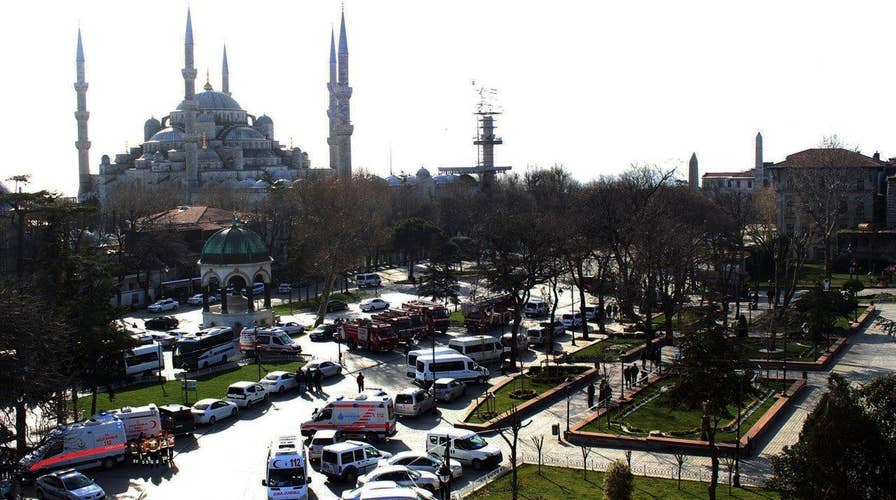The terrorists’ war on the West continues, and the news from the front isn’t good.
Tuesday a terrorist bomb ripped through downtown Istanbul, killing more than 10. The massacre comes a day after a series of terrorist attacks killed more than 50 in and around Baghdad.
This week’s attacks simply reinforce a point that’s been evident for quite some time: the global “jihad” will continue—even if the West declines to fight. And declining to fight only quickens the tempo of the attacks.
Sadly, President Obama doesn’t seem to get it at all. Early last year, he expressed frustration that the media, rather than portraying what a great job he was doing to combat terrorism, was “absolutely” over-hyping the terrorist threat.
And he holds that view still.
The New York Times reports that, in a recent off-the-record meeting with columnists, Mr. Obama “emphasized that the Islamic State… did not threaten the United States in a fundamental way.”
But threats don’t have to be existential to be deadly, and to suggest that there is no terrorist tsunami is like arguing that “The Biggest Loser” is a show about anorexia.
The terrorist are back in a big way—and not just with high-profile attacks like Paris, San Bernardino, and now Istanbul. Numbers don’t lie.
You may never have heard of Emanuel Lutchman, an ex-con and—more importantly—an ISIS sympathizer. The FBI arrested him on Dec. 30 for plotting a New Year’s Eve attack on Rochester, N.Y. According to a data base maintained by Riley Walters at The Heritage Foundation, “the 76th Islamist-inspired terror attack/plot on the United States since 9/11 and the 13th in 2015—making 2015 the year with the greatest number of attacks or plots over the past 14 years.”
And it is not just a domestic phenomenon. Terrorist threats are up across the Greater Middle East and Western Europe.
Still, most of us spent last year arguing over what the problem is not. The problem is not refugees, immigrants, visas, or anybody else’s bugbear. The problem is the terrorists and the terrible ideas that inspire them.
Why don’t we get it?
In 1999, an independent, bi-partisan commission warned Congress that transnational terrorism would be scourge of the post-Cold War world. Nobody really paid attention.
Two years later, 9/11 got our attention. But as we succeeded in rolling back Al Qaeda, our sense of security strengthened and our determination to fight waned.
America elected a president who vowed to end the war. It turned out that his strategy for dealing with the problem was to wish it away. Abroad, he withdrew troops according to a self-imposed timetable rather than what “facts on the ground” required. At home, his directives for the Department of Homeland Security were to make sure its top priorities were implementing amnesty and dealing with global warming.
Without American leadership, global terrorism has come roaring back. The best example of that is the terrorists’ use of foreign fighter pipelines. Today, they can readily move recruits all over the world—pouring them into the fight in the Middle East or stashing them among the flood of refugees they’ve helped to create.
For the U.S. and the international community as a whole, shutting down the networks that terrorists use to funnel extremists around the world ought to be job one for the New Year.

